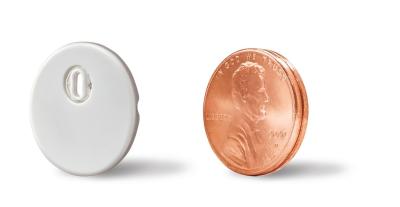Abbott is announcing plans for a three-way collaboration to put forward an automated insulin delivery system in Europe by the end of this year, connected to its FreeStyle Libre 3 wearable glucose sensor.
Those blood sugar readings will be fed to a smart insulin pump from Ypsomed as well as a mobile app developed by the University of Cambridge spinout CamDiab, which recently demonstrated that its artificial pancreas software could help control Type 1 diabetes among toddlers and young children.
“Our CamAPS FX, already approved in Europe, is a highly adaptive algorithm that when integrated with Abbott's sensor is being designed to communicate with Ypsomed's insulin pump to provide the optimal insulin dose, lifting the burden of managing a condition that is relentlessly unpredictable day and night,” CamDiab Director Roman Hovorka said in a statement during the International Conference on Advanced Technologies and Treatments for Diabetes in Barcelona.
The CamAPS FX self-learning app is a hybrid, closed-loop system that runs on an Android smartphone and can be tuned to users as young as one year old. CamDiab has been working with Ypsomed since March to link the software with its mylife YpsoPump system while relying on data from Dexcom’s G6 continuous glucose monitor to adjust insulin doses and help keep blood sugar levels from dropping too low or growing too high.

In January, CamDiab presented results from a randomized clinical trial showing that over 70% of children were able to go 24 hours without their glucose readings leaving a healthy range and that participants spent an additional two hours per day on average with stable levels.
The Switzerland-based Ypsomed, meanwhile, has previously teamed up with companies such as Philips to bring self-medication adherence tracking software to a variety of connected drug delivery devices including auto-injectors and infusion systems used in diabetes, multiple sclerosis and rheumatoid arthritis.
Though still seeking a green light in the U.S., Abbott scored a CE mark for its FreeStyle Libre 3 in late 2020, featuring a sensor the size of a small coin worn on the back of the upper arm for up to two weeks. The European approval came just months after the company received an FDA clearance for the device’s previous generation, the comparatively larger FreeStyle Libre 2.
Regardless, Abbott’s worldwide sales of its FreeStyle Libre continuous glucose monitors reached about $1 billion, a stat that's up more than 20% since the start of 2021, the company reported last week.